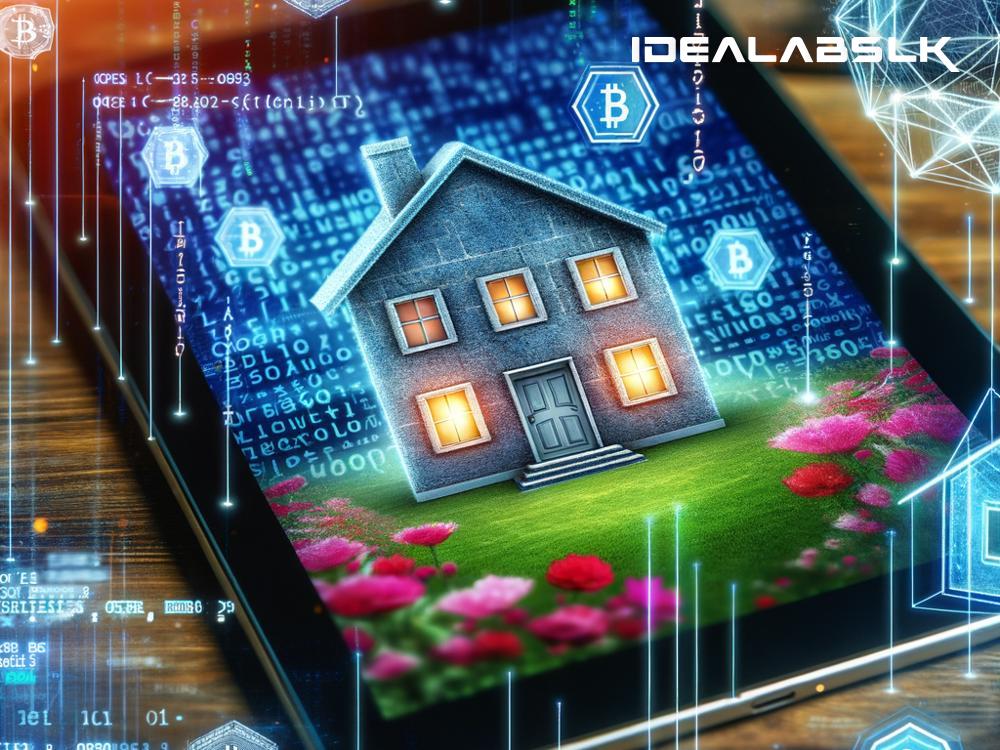Blockchain for Real Estate: Transforming Transactions for the Better
In today's fast-paced world, technology continuously reshapes various industries, making processes more efficient, secure, and user-friendly. One such groundbreaking advancement is blockchain technology. While you've likely heard this term in relation to cryptocurrencies like Bitcoin, you might wonder, "What does this have to do with real estate?" Quite a lot, as it turns out. Blockchain is poised to revolutionize the real estate industry by enabling secure, fast, and low-cost transactions. Let's break this down into simpler terms to understand how blockchain is changing the real estate game for the better.
What is Blockchain?
Imagine a ledger or a record book that's not held by one person or organization but is distributed across thousands of computers around the world. This ledger records transactions in blocks, and once a block is filled with transactions, it's linked to the previous block, forming a chain of blocks or a 'blockchain'. What's special about this system is its transparency and security. Every transaction is verified by multiple participants in the network, making it nearly impossible to hack or alter, which brings us to how this technology is making waves in the real estate sector.
Secure Transactions
In traditional real estate transactions, there’s always a lingering risk of fraud. Fake titles and identity theft can lead to significant financial losses and legal battles. Blockchain dramatically enhances security by providing a tamper-proof record of every transaction. Once a property sale is recorded on a blockchain, it cannot be altered or deleted, thus, practically eliminating the risk of fraud. Additionally, blockchain can securely store all related documents, from title deeds to inspection reports, ensuring that all the paperwork is legitimate and unchanged.
Speeding Things Up
Real estate transactions are notorious for their lengthy processes, involving numerous steps that can take several days or even months to complete. Blockchain can streamline these transactions by making them almost instantaneous. Smart contracts, which are self-executing contracts with the terms of the agreement directly written into lines of code, remove the need for intermediaries such as lawyers and banks. These contracts automatically execute transactions when conditions are met, significantly reducing the time from offer to sale.
Lowering Costs
Another pain point in real estate transactions is the high costs involved, including legal fees, brokerage fees, and bank charges. Blockchain has the potential to reduce these expenses dramatically. With smart contracts automating and securing the transaction process, the need for intermediaries and their associated fees is reduced or even eliminated. This can result in significant savings for both buyers and sellers, making real estate transactions more financially accessible to a broader range of people.
Democratizing Real Estate Investing
Traditionally, investing in real estate has been a domain for the well-off, primarily due to the high capital requirement. Blockchain introduces the concept of tokenization, which means dividing property into shareable digital tokens that represent ownership or a stake in the property. This allows for fractional ownership, enabling smaller investors to buy tokens of expensive real estate assets, just as they would purchase shares in a company. It opens up opportunities for more people to invest in real estate, making the market more inclusive.
Enhancing Transparency
Blockchain's inherent transparency comes from its distributed ledger that everyone in the network can access. Every transaction is recorded publicly, allowing for a level of openness and accountability that is unheard of in traditional real estate dealings. Buyers and sellers can trace the history of a property, see previous sales prices, and verify the legitimacy of claims, making the entire process more transparent and trustworthy.
Final Thoughts
The integration of blockchain into real estate is still in its early stages, but the potential benefits are undeniable. By making transactions more secure, faster, and less expensive, and by democratizing real estate investment, blockchain technology promises to make the purchase and sale of properties accessible to a wider audience. As this technology continues to develop and become more widely adopted, it could very well redefine the real estate landscape entirely. The future of buying and selling properties is on the cusp of a major transformation, one that promises to benefit all participants in the real estate market. So, the next time you hear about blockchain, remember, it's not just about digital currencies—it's about a more efficient, secure, and inclusive way of transacting in the real world, starting with your next home or investment property.

